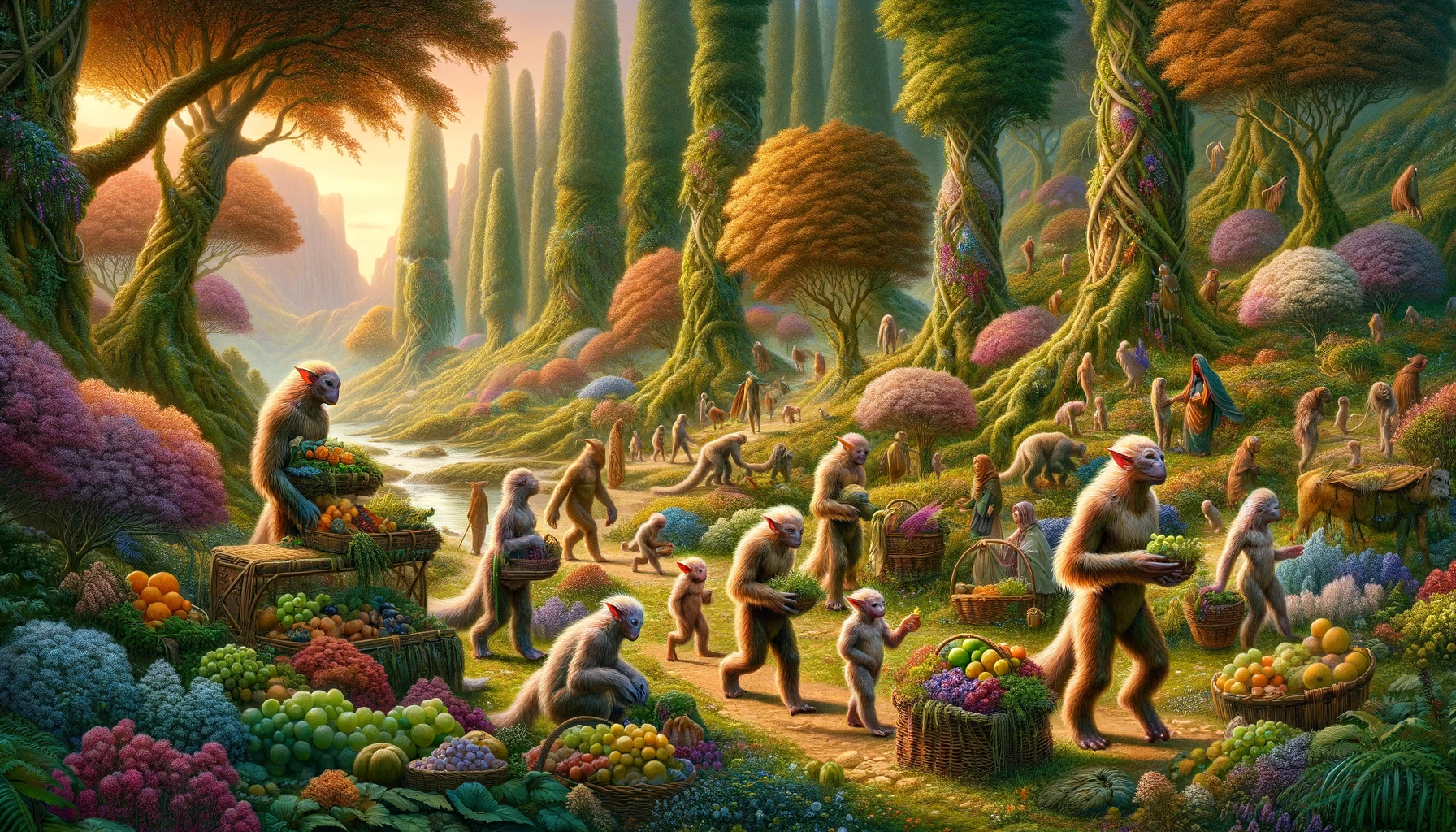In the ancient land of Mirath, there were creatures known as the Thalins. They loved their homeland deeply, cherishing the strong sense of home and community it gave them. They roamed the lush forests and fields, living in harmony with the land and feasting on the plants that grew there. But when strife arose, a group of Thalins decided to journey to a distant place in search of peace.
Determined to hold on to their roots, they brought their beloved foods with them, carrying seeds from home with hopes of cultivating them in the new land. The Thalins spent much of their time trying to recreate the life they once had, so focused on longing for what was lost that they overlooked the beauty and opportunities in front of them. Complaints arose about how nothing was the same—how the soil didn’t feel as rich or the air didn’t smell like home. The skies and earth around them seemed strange and distant, leaving the Thalins with a sense of disconnect.
One day, they met an elder from the new land, a wise figure who had welcomed many new neighbors over the years. Understanding their struggles—having come from a different land himself—he shared a simple but powerful truth: “To feel truly at home, you must embrace the gifts of the land you inhabit. Trust that you belong, and in time, you will find that you are already home.”
Encouraged by the elder’s wisdom, the Thalins began cultivating the local plants, accepting that the land held its own unique gifts. As they tended to these new plants, they began to notice small changes—how the seasons in this land brought unexpected colors, how the fruit grew faster than they were used to.
One day, the elder gifted them an ancient plant, unlike anything they had known before. This plant had deep roots in the soil of their new home. When the Thalins consumed its fruits, they felt a gentle bond to the land and the life around them. It was as if they finally understood the rhythm of the place they had once thought so foreign.
In time, the Thalins began to see their surroundings and the people of the land in a new light. Their view of the land transformed, as did their understanding of the world around them. Though they still missed their old home, they found peace in the new one, realizing that true harmony came from embracing both their past and their present.
And so, the Thalins stayed, not as strangers but as a part of the land they once thought was foreign, with new eyes and a newfound sense of belonging. The complaints of before faded away, replaced by a deeper appreciation for the life unfolding before them. They were home.
